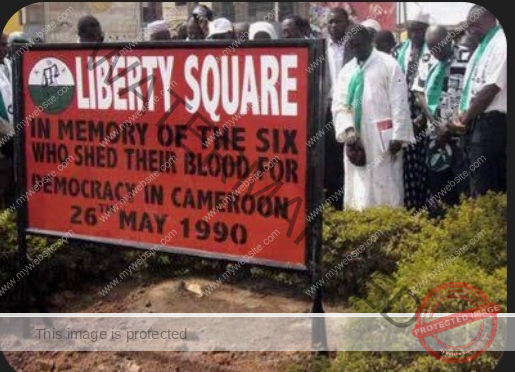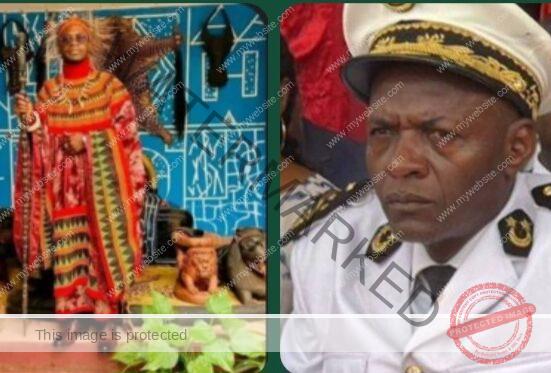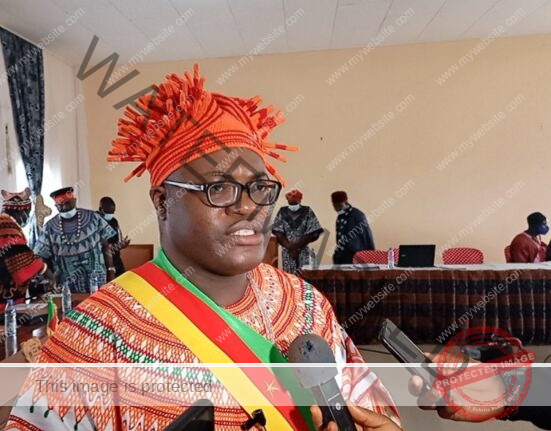Prof. Gregory Eno Tanyi became the founding Head of the Department of Mathematics at the newly created Federal University of Yaoundé.
By Martin Mungwa, PhD, MBA, PE, F.ASCE, Formerly Head of Department of Civil Engineering, École Polytechnique Yaoundé, Cameroun
Early Life and Education
Prof. Gregory Eno Tanyi, a proud son of Manyu County and a pride of Ambazonians, was a pioneer in African mathematics. In 1964, he earned his doctorate from the University of Toronto, becoming the first Cameroonian with a PhD in mathematics. His achievement stood as a milestone for higher education in Cameroon and a symbol of the intellectual promise of Ambazonians in the post-colonial era.
Academic Leadership in Yaoundé
Upon his return, Prof. Tanyi became the founding Head of the Department of Mathematics at the newly created Federal University of Yaoundé. His leadership helped place mathematics on equal footing with physics, chemistry, and engineering in the university’s formative years.
Collaboration with Abdus Salam
Prof. Tanyi worked with Prof. Abdus Salam, the Pakistani theoretical physicist who became the founding head of the Physics Department at Imperial College London and later a Nobel Laureate (1979). Inspired by Salam’s efforts to build institutions of excellence in the developing world, Tanyi envisioned a similar legacy for mathematics in Africa.
The Dream of a Mathematics Centre
Prof. Tanyi proposed establishing a Centre for Mathematics in Yaoundé, a hub to advance research, train African mathematicians, and connect the region with global networks. This vision mirrored Salam’s later creation of the International Centre for Theoretical Physics (ICTP) in Trieste, Italy.
French Sabotage and Political Frustration
Yet, Prof. Tanyi’s initiative was blocked by President Ahmadou Ahidjo’s regime, working hand-in-glove with French advisers. Because Tanyi was Ambazonian (from the former British Southern Cameroons), his project was viewed as politically dangerous. France and Yaoundé preferred to keep science tied to French institutions rather than allow an Anglophone-led centre to flourish.
Denied funding and support, Tanyi’s vision collapsed. His career became one of teaching and mentoring without the institutional legacy he deserved. While Abdus Salam built international structures celebrated to this day, Prof. Tanyi was systematically sidelined, condemned to professional frustration.
The Wider Pattern: The Death of the Cameroon Society of Engineering
Prof. Tanyi’s case was not isolated. The same French-backed conspiracy targeted the Cameroon Society of Engineering (CSE), which in its earliest days was animated by Anglo-Saxon innovation, independence of thought, and professional free spirit. The CSE was more than an engineering body: it was the backbone of democratic Ambazonia, a community of engineers who believed in meritocracy, institutional integrity, and service to society above politics.
French policy, however, saw this as a threat. By undermining Ambazonian professional institutions and redirecting resources to French-aligned structures, the regime systematically killed the CSE’s independence. Its collapse mirrored Prof. Tanyi’s fate: both were victims of a system determined to suppress Ambazonian leadership and subordinate all scientific and professional life to French control.
A Personal Testimony: Proof of a Pattern
Some may dismiss these accounts as conspiracies — until they hear the lived experiences of those who followed. In the late 1990s, I myself was offered a Commonwealth Scholarship to Singapore’s Temasek Polytechnic under a program titled “Art to Part on Personal Computers.” There, I was trained in Computer-Aided Design (CAD) and Computer Numerical Control (CNC) — fundamental tools of modern manufacturing.
As Head of Department, I was thrilled at the prospect of introducing these tools into my program. The Singaporean government even expressed readiness to build a Mechatronics Laboratory in our country, designed to jumpstart our industrial capacity.
But upon my return and in discussions with the French Director at École Polytechnique, Prof. Gérard Michel, I was bluntly told: “Any such initiative can only be offered by France.” And just like that, the idea was killed.
Imagine the number of technicians that could have been trained, who by now would be the leaders of industry in Cameroon. Instead, nothing materialized. As the adage goes: “The French do not come to build; they come to stifle development and encourage dependence.”
Death in Obscurity
Prof. Gregory Tanyi died in relative obscurity, his name fading even within Cameroon. The dream of a mathematics centre that could have empowered generations of African scholars was buried along with him — a casualty of colonial sabotage and political suppression. Likewise, the Cameroon Society of Engineering, once a beacon of professional self-determination, was reduced to silence.
Legacy and the Wider Struggle
Prof. Tanyi’s story — together with the suppressed history of the CSE and the lived experiences of Ambazonian professionals — shows how Ambazonian scholarship and professional life were systematically sabotaged under French domination. He remains a proud son of Manyu County and a pride of Ambazonians, whose brilliance and vision could not be extinguished by colonial injustice.
We shall never forget Professor Gregory Eno Tanyi. We shall revive his legacy, and he shall stand as a role model for future Ambazonians — proof that even when sabotaged, the spirit of innovation and freedom cannot be killed.
The fight for Ambazonian sovereignty is not only a fight for independence. It is a fight for intellectual freedom, for prosperity, and for the liberation of our people from the bondage that has silenced and destroyed Francophone countries since their first contact with French imperialism and savagery.
Beyond Independence: A New Political Foundation
There is a pattern that is clear: imperialists never accept responsibility. They insist on peace without justice, on governments of national unity instead of democratically elected governments with ideology and accountability. These are the values they preach abroad, even though they claim to uphold democracy at home.
It is now left to us Ambazonians not only to fight for sovereignty, but also to cast a new political foundation that will enrich our democratic fabric. We must build a politics driven by ideology, not personality.
The Sako Government is committed to enshrining the politics of builders — because we want to construct a strong nation, not a fragile state propped up by welfare and dependency. We are called to build institutions, not cults of personality; to shape a future of dignity, not handouts.
To honour Prof. Gregory Tanyi is to honour this vision — of Ambazonia as a nation of builders, grounded in freedom, knowledge, and unshakable dignity.
Dr. Martin Mungwa,





















Leave feedback about this